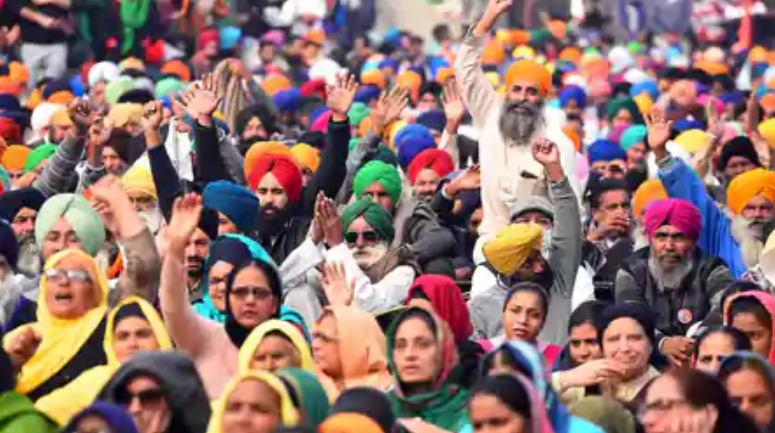The revolutionary Farm Bills passed by the Union government earlier this year have become the bone of contention for the big landlord farmers and middlemen of Punjab who have taken to the streets and cornered the national capital by blocking the borders. The protests have been hijacked by several non-stakeholders like Khalistanis, political parties and of course the left-liberal cabal that needs some surrogate, every now and then to push its vile agendas. However, a simple analogy given by Atul Mishra, the ‘founderwa’ of TFI, encapsulated in a tweet thread, uncovers the barebones of the farm bills in a rather minimalistic fashion.
The thread starts off with the Twitter user reimagining his organization’s history and how things could have been different if two government laws were slightly manoeuvred on how news media organizations operate.
My alternate history: A thread and a very important one
I started TFI as a Facebook page in 2012. In 8 years of its existence, it has metamorphosed into a mini-media company with dedicated websites and video channels.
— Atul Kumar Mishra (@TheAtulMishra) December 18, 2020
The first hypothetical change in law imagined was that content created by news websites could only be consumed in the same state. Secondly, the aforementioned content produced cannot be shared with the content consumers directly but it needs to be shared to a middleman who would upload it on a content aggregator website. Consumers can pick and choose the content they want to consume.
If the content is produced then there needs to be some source of revenue, as well. Therefore, for the sake of simplicity, the revenue model remains ad-based. Remember, the laws have been changed, so the revenue generated by the ads will funnel through the middlemen and then land in the lap of the content creators.
It doesn’t take an expert economist to understand that revenue coming from the middlemen would be a fraction of what the content website would have reimbursed itself with if there was no third party in between.
The revenue model remains ad based. The middlemen take a lion’s share of the ad revenues and send us a fraction of the revenue.
— Atul Kumar Mishra (@TheAtulMishra) December 18, 2020
Moreover, the content creators are at the mercy of the middlemen if they decide to buy their content or not. With no other source of selling the content, the team of creators will inadvertently delete the content and costs incurred will become an overhead. Secondly, the content is only limited to a certain geography and certain demography that might not even like to consume it. The platform on which the content would be dumped might not even cater to the audience that the website initially set out to offer their services to. Essentially, a loss-loss situation for the website.
Bottom line, the employees of the organisation will be forced to look outside their job profiles and eventually settle for menial side jobs. The aforementioned hypothetical setting seems tedious to discuss, forget the reality of its implementation which might be further jarred by several external factors. If the similar analogy is applied to the pharma, IT or any other service sector, the result will more often than not, be the same.
Now replace content with farm produce, team TFI with farmers, aggregator with Mandi.
The farmers remain perpetually weak, poor, unhappy, powerless and debt ridden. They do work under MNREGA just to survive and some get crushed under mountains of debt.
— Atul Kumar Mishra (@TheAtulMishra) December 18, 2020
Now replace the content with farm produce, a content organization with farmers, aggregator with Mandi and voila you have the perfect representation of the current farmer’s situation.
Read more: Why the political farmers protest is harming the image of the farmers
The farmers of the country find themselves in a similar dilemma and because the laws have been wrongly interpreted, some are afraid of losing the safety net of MSP, when the government has explicitly said that the institution of MSP is here to stay.
The small-time farmers are currently surrendering the money for the middlemen who gobble up the lion’s share and pass on few dimes and nickels and continue operating the nanny state by being its lynchpins.
The farmers are being fed strawman fallacies where the only argument by the non-state actors masquerading as farmers is that the rich corporations will get richer and enjoy a certain authority over how the price is set.
Diljit Dosanjh, the Punjabi singer who has become the leader of woke left-liberals was seen propagating similar lies by posting a video that conjured upon a lot of nonsense. Another Twitter user named Karan Bhasin, an expert economist systematically dismantled Diljit’s false narrative and countered it with facts.
https://twitter.com/karanbhasin95/status/1339860807144726530
Farmers of the country and especially Punjab are being exploited for gains by some vested interest groups. There is already an uncanny resemblance to the Shaheen Bagh model of protests and therefore these so-called protestors do not have a leg to stand on. Despite the government’s assurances to meet the farmers in the middle, the non-state actors have ensured that the protest continues to simmer and hamper the economy of the region.
Read more: The striking similarities between Shaheen Bagh and Farmers’ protests
